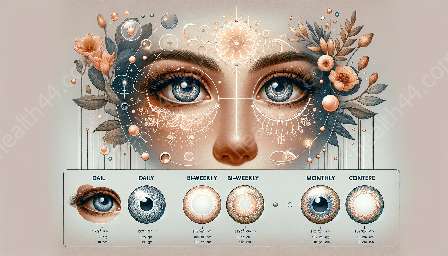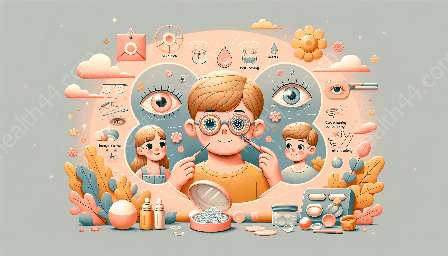Children's self-esteem and confidence are important aspects of their overall well-being, and the choice to wear contact lenses can have significant impacts in these areas. In this topic cluster, we'll explore the potential benefits of contact lens wear for children, focusing on how it can enhance their self-esteem and confidence.
Contact Lens Wear in Children
Contact lens wear in children has become increasingly common, offering an alternative to traditional eyeglasses. Many children and parents are considering contact lenses for various reasons, including aesthetic preferences, participation in sports, and improved vision correction.
The Psychological Impact of Contact Lens Wear
Wearing contact lenses can bring about positive psychological effects for children, influencing their self-esteem and confidence in multiple ways. Here are some potential benefits:
- Sense of Normalcy: For children who are self-conscious about wearing eyeglasses, contact lenses can provide a sense of normalcy, helping them feel more like their peers and reducing the potential for teasing or bullying.
- Improved Self-Image: Contact lenses may enhance a child's self-image by allowing them to express themselves without the barrier of eyeglasses, potentially boosting their confidence and social interactions.
- Increased Independence: Mastering the responsibility of contact lens care can foster a sense of independence and maturity in children, positively impacting their self-esteem.
- Expanded Activities: Contact lenses can enable children to engage in activities such as sports, swimming, and other physical activities without the constraints of eyeglasses, promoting a more active and confident lifestyle.
- Adaptability and Resilience: Learning to handle and adapt to contact lenses can contribute to a child's resilience and adaptability, qualities that can further bolster their self-esteem and confidence.
Considerations for Contact Lens Wear in Children
While the potential benefits of contact lens wear for children's self-esteem and confidence are significant, it's essential to consider the following aspects:
- Parental Involvement: Parents play a crucial role in guiding and supporting their children in the use of contact lenses, ensuring proper hygiene, adherence to wearing schedules, and regular eye checks.
- Age and Maturity: Assessing a child's readiness for contact lens wear involves considering their age, level of maturity, ability to follow instructions, and commitment to lens care.
- Eye Health and Safety: Prioritizing eye health is paramount, and children should undergo comprehensive eye examinations to ensure they are suitable candidates for contact lens wear.
Conclusion
Overall, the potential benefits of contact lens wear for children's self-esteem and confidence are closely intertwined with their emotional well-being, social interactions, and sense of independence. By considering the psychological impact and practical aspects of contact lens wear in children, parents and caregivers can make informed decisions that support children in developing a positive self-image, confidence, and resilience.





















